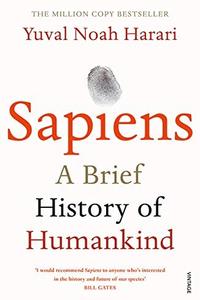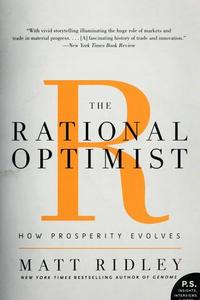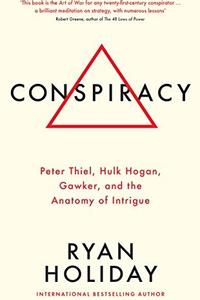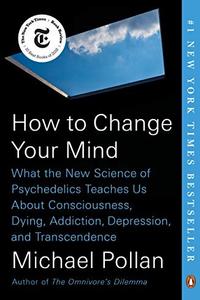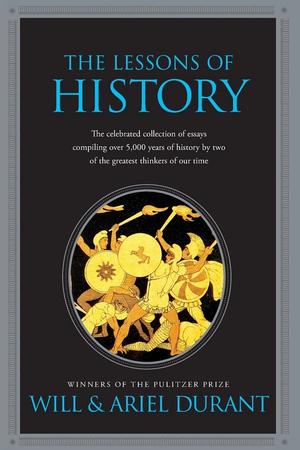
The Lessons of History by Will & Ariel Durant: Summary & Notes
by Will & Ariel Durant
Related reading: Sapiens, The Rational Optimist, A Place of My Own
In One Sentence
Human nature and the patterns of history repeat endlessly—understanding these lessons helps us see our own time more clearly.
Key Takeaways
- Human nature doesn't change—history rhymes
- Inequality is natural; redistribution is periodic
- Morality evolved for social survival
- Freedom and equality are eternal enemies
- War is constant in history; peace is the exception
- Religion will always exist in some form
Summary
A wonderful summary of the main learnings from history. This book is a distillation of the 11-volume The Story of Civilization.
It can be read in a short single sitting, and the lessons will no doubt stand the test of time.“History repeats itself, but only in outline and in the large.”
Who Should Read This Book
- History enthusiasts
- Leaders and policy makers
- Anyone seeking historical perspective
- People interested in timeless patterns
FAQ
What are the main lessons of history?
Human nature is constant. Inequality is natural. Morality serves survival. Freedom and equality conflict. War is normal; peace is rare. Religion endures. Civilizations rise and fall in cycles. These patterns repeat because people remain the same.
Chapter-by-Chapter Breakdown
Notes
- Our knowledge of the past is always incomplete, inaccurate and distorted. “Most history is guessing, and the rest is prejudice.”
- The influence of geographic factors diminishes as technology grows.
III. Biology and History
- Life is competition. Cooperation exists because it is a tool and form of competition.
- Life is selection. We are not born equal; the best we can do is provide equal opportunity for all abilities to develop and function.
- Life must breed.
V. Character and History
- No single person can judge the customs or institutions of their society, because they are the collective wisdom of generations of experiment.
- As a result, the conservative who resists change is as valuable as the radical who proposes it. We need radicals for the few ideas which are good, and we need conservatives to oppose the rest which aren’t.
VI. Morals and History
- Moral codes differ because they adjust themselves to historical and environmental conditions. The codes have varied significantly between different periods in economic history: hunting, agricultural and industrial.
- Sin has flourished in every age; the moral laxity of our times may simply be part of our transition to a new moral code. Either way, we can take solace in the fact that civilizations are slow to decay.
- The freedom of the part varies with the security of the whole; individualism diminishes as geographical protection ceases. In other words, wars unite people.
VII. Religion and History
- Religion has long played a role in stemming unrest caused by inequality. It provides hope for those less happy.
- Religion and puritanism grow in times when laws are feeble; skepticism and paganism grow in times when the power of law and government grow.
- There is no significant example in history of a society successfully maintaining moral life without the aid of religion.
VIII. Economics and History
- History, according to Karl Marx, is economics in action—the contest, among individuals, groups, classes, and states, for food, fuel, materials, and economic power. Political forms, religious institutions, cultural creations, are all rooted in economic realities.
- Every economic system must rely on some form of the profit motive to stir individuals and groups to productivity.
- Substitutes like slavery, police supervision, or ideological enthusiasm prove too unproductive, too expensive, or too transient.
- Men are judged by their ability to produce—except in war, when they are ranked according to their ability to destroy.
- Practical ability differs from person to person and the majority of such abilities, in nearly all societies, is gathered in a minority of men.
- The concentration of wealth is a natural result of this concentration of ability, and regularly recurs in history.
- The rate of concentration varies (other factors being equal) with the economic freedom permitted by morals and the laws. Despotism may for a time retard the concentration; democracy, allowing the most liberty, accelerates it.
- The relative equality of Americans before 1776 has been overwhelmed by a thousand forms of physical, mental, and economic differentiation, so that the gap between the wealthiest and the poorest is now greater than at any time since Imperial plutocratic Rome.
- In progressive societies the concentration may reach a point where the strength of number in the many poor rivals the strength of ability in the few rich; then the unstable equilibrium generates a critical situation, which history has diversely met by legislation redistributing wealth or by revolution distributing poverty.
- The concentration of wealth is natural and inevitable, and is periodically alleviated by violent or peaceable partial redistribution.
X. Government and History
- Monarchy seems to be the most natural kind of government, since it applies to the group the authority of the father in a family or of the chieftain in a warrior band. If we were to judge forms of government from their prevalence and duration in history we should have to give the palm to monarchy; democracies, by contrast, have been hectic interludes.
- Most governments have been oligarchies—ruled by a minority, chosen either by birth, as in aristocracies, or by a religious organization, as in theocracies, or by wealth, as in democracies. It is unnatural for a majority to rule, for a majority can seldom be organized for united and specific action, and a minority can.
- In strict usage of the term, democracy has existed only in modern times, for the most part since the French Revolution.
- The establishment of America was eased and quickened by an abundance of free land and a minimum of legislation. Rural isolation enhanced the freedom of the individual, and national isolation provided liberty and security within protective seas.
- Many of these formative conditions have disappeared. Personal isolation is gone through the growth of cities. Personal independence is gone through the dependence of the worker upon tools and capital that he does not own, and upon conditions that he cannot control. War becomes more consuming, and the individual is helpless to understand its causes or escape its effects. Free land is gone, though home ownership spreads—with a minimum of land. Economic freedom is more and more exceptional, making political freedom a pretense.
- Every advance in the complexity of the economy puts an added premium upon superior ability, and intensifies the concentration of wealth, responsibility, and political power.
- Democracy has done less harm, and more good, than any other form of government.
- Men cannot be equal, but their access to education and opportunity can be made more nearly equal.
- In England and the United States, in Denmark, Norway, and Sweden, in Switzerland and Canada, democracy is today sounder than ever before. It has defended itself with courage and energy against the assaults of foreign dictatorship, and has not yielded to dictatorship at home. But if war continues to absorb and dominate it, or if the itch to rule the world requires a large military establishment and appropriation, the freedoms of democracy may one by one succumb to the discipline of arms and strife. If race or class war divides us into hostile camps, changing political argument into blind hate, one side or the other may overturn the hustings with the rule of the sword. If our economy of freedom fails to distribute wealth as ably as it has created it, the road to dictatorship will be open to any man who can persuasively promise security to all; and a martial government, under whatever charming phrases, will engulf the democratic world.
XI. History and War
- War is one of the constants of history, and has not diminished with civilization or democracy.
- War is the ultimate form of competition and natural selection in the human species. Peace is an unstable equilibrium which can be preserved only by acknowledged supremacy or equal power.
- The causes of war are the same as the causes of competition among individuals: acquisitiveness, pugnacity, and pride; the desire for food, land, materials, fuels, mastery. The state has our instincts without our restraints.
- The individual submits to restraints laid upon him by morals and laws, and agrees to replace combat with conference, because the state guarantees him basic protection in his life, property, and legal rights. The state itself acknowledges no substantial restraints, either because it is strong enough to defy any interference with its will or because there is no superstate to offer it basic protection, and no international law or moral code wielding effective force.
- In the individual, pride gives added vigor in the competitions of life; in the state, nationalism gives added force in diplomacy and war.
XII. Growth and Decay
- History repeats itself, but only in outline and in the large.
- We may reasonably expect that in the future, as in the past, some new states will rise, some old states will subside; that new civilizations will begin with pasture and agriculture, expand into commerce and industry, and luxuriate with finance; that thought will pass, by and large, from supernatural to legendary to naturalistic explanations; that new theories, inventions, discoveries, and errors will agitate the intellectual currents; that new generations will rebel against the old and pass from rebellion to conformity and reaction; that experiments in morals will loosen tradition and frighten its beneficiaries; and that the excitement of innovation will be forgotten in the unconcern of time.
- History repeats itself in the large because human nature changes with geological leisureliness, and man is equipped to respond in stereotyped ways to frequently occurring situations and stimuli like hunger, danger, and sex. But in a developed and complex civilization individuals are more differentiated and unique than in a primitive society, and many situations contain novel circumstances requiring modifications of instinctive response; custom recedes, reasoning spreads; the results are less predictable. There is no certainty that the future will repeat the past. Every year is an adventure.
- When the group or a civilization declines, it is through the failure of its political or intellectual leaders to meet the challenges of change.
- The challenges may come from a dozen sources, and may by repetition or combination rise to a destructive intensity.
- Since inequality grows in an expanding economy, a society may find itself divided between a cultured minority and a majority of men and women too unfortunate by nature or circumstance to inherit or develop standards of excellence and taste. As this majority grows it acts as a cultural drag upon the minority; its ways of speech, dress, recreation, feeling, judgment, and thought spread upward, and internal barbarization by the majority is part of the price that the minority pays for its control of educational and economic opportunity.
- As education spreads, theologies lose credence, and receive an external conformity without influence upon conduct or hope. Life and ideas become increasingly secular, ignoring supernatural explanations and fears. The moral code loses aura and force as its human origin is revealed, and as divine surveillance and sanctions are removed.
- Caught in the relaxing interval between one moral code and the next, an unmoored generation surrenders itself to luxury, corruption, and a restless disorder of family and morals, in all but a remnant clinging desperately to old restraints and ways. Few souls feel any longer that “it is beautiful and honorable to die for one’s country.” A failure of leadership may allow a state to weaken itself with internal strife. At the end of the process a decisive defeat in war may bring a final blow, or barbarian invasion from without may combine with barbarism welling up from within to bring the civilization to a close.
- However, societies don’t really die. Greek civilization is not really dead; it survives in memory, and in things like philosophy and literature which we study.
XIII. Is Progress Real?
- Against this panorama of nations, morals, and religions rising and falling, the idea of progress finds itself in dubious shape. Is it only the vain and traditional boast of each “modern” generation? Since we have admitted no substantial change in man’s nature during historic times, all technological advances will have to be written off as merely new means of achieving old ends—the acquisition of goods, the pursuit of one sex by the other (or by the same), the overcoming of competition, the fighting of wars.
- We should first define what progress means to us. If it means increase in happiness its case is lost almost at first sight. Our capacity for fretting is endless, and no matter how many difficulties we surmount, how many ideals we realize, we shall always find an excuse for being magnificently miserable; there is a stealthy pleasure in rejecting mankind or the universe as unworthy of our approval.
- We shall here define progress as the increasing control of the environment by life. It is a test that may hold for the lowliest organism as well as for man.
- If education is the transmission of civilization, we are unquestionably progressing. Civilization is not inherited; it has to be learned and earned by each generation anew; if the transmission should be interrupted for one century, civilization would die, and we should be savages again. So our finest contemporary achievement is our unprecedented expenditure of wealth and toil in the provision of higher education for all.
- Consider education not as the painful accumulation of facts and dates and reigns, nor merely the necessary preparation of the individual to earn his keep in the world, but as the transmission of our mental, moral, technical, and aesthetic heritage as fully as possible to as many as possible, for the enlargement of man’s understanding, control, embellishment, and enjoyment of life.
- The heritage that we can now more fully transmit is richer than ever before. It is richer than that of Pericles, for it includes all the Greek flowering that followed him; richer than Leonardo’s, for it includes him and the Italian Renaissance; richer than Voltaire’s, for it embraces all the French Enlightenment and its ecumenical dissemination. If progress is real despite our whining, it is not because we are born any healthier, better, or wiser than infants were in the past, but because we are born to a richer heritage, born on a higher level of that pedestal which the accumulation of knowledge and art raises as the ground and support of our being. The heritage rises, and man rises in proportion as he receives it.
- History is, above all else, the creation and recording of that heritage; progress is its increasing abundance, preservation, transmission, and use. To those of us who study history not merely as a warning reminder of man’s follies and crimes, but also as an encouraging remembrance of generative souls, the past ceases to be a depressing chamber of horrors; it becomes a celestial city, a spacious country of the mind, wherein a thousand saints, statesmen, inventors, scientists, poets, artists, musicians, lovers, and philosophers still live and speak, teach and carve and sing. The historian will not mourn because he can see no meaning in human existence except that which man puts into it; let it be our pride that we ourselves may put meaning into our lives, and sometimes a significance that transcends death. If a man is fortunate he will, before he dies, gather up as much as he can of his civilized heritage and transmit it to his children. And to his final breath he will be grateful for this inexhaustible legacy, knowing that it is our nourishing mother and our lasting life.
